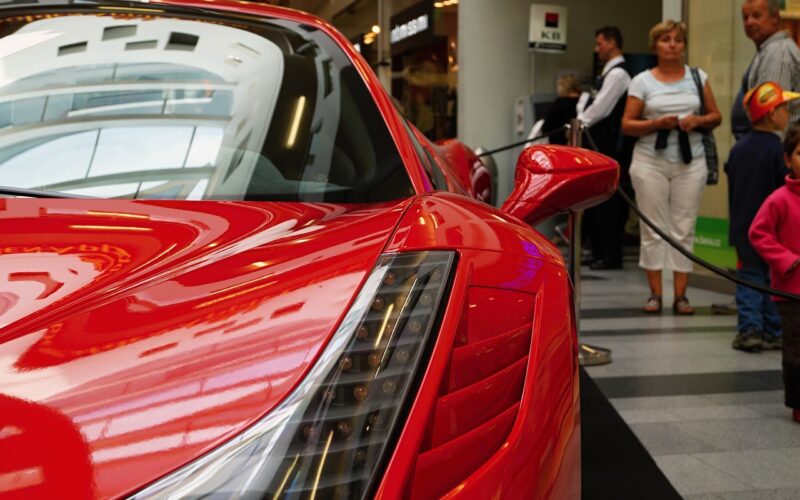Fast Experience
Experiential marketing has revolutionized the way companies promote their products, and the sports car industry stands at the forefront of this transformative marketing approach.
This hands-on strategy goes beyond traditional specs and sales pitches, inviting potential buyers to fully immerse themselves in the power and luxury of a sports car.
Instead of simply listing features or exhibiting static models at car shows, brands are now curating dynamic driving experiences that trigger emotional reactions and forge lasting brand connections.
Given the keys
One example of experiential marketing in action is the test drive event taken to new heights.
Picture a potential customer not just taking a sports car for a spin around the block but being given the keys to navigate a professional race track. This not only showcases the vehicle's high performance and handling but also ignites the exhilaration that can only be felt behind the wheel of such a machine.
It's the difference between telling someone about the rush of acceleration and them experiencing the g-force as they launch off the starting line.
Historic race moments
Furthermore, the rise of immersive pop-up experiences allows consumers to step into a world tailored to embody the essence of a sports car brand.
Imagine walking into a venue that's been transformed to replicate the thrilling atmosphere of a grand prix event, complete with the sound of engines roaring and a gallery of historic race moments.
Attendees can interact with the latest models, use simulators to feel a race from the driver's perspective, or participate in pit crew challenges—all meticulously designed to enhance the relationship between the customer and the sports car brand.
Sharing genuine reactions
The role of social media influencers in these experiences cannot be downplayed. A well-known YouTuber or Instagram celebrity taking part in an event and sharing their genuine reactions can validate the thrill and prestige of a sports car to millions of followers.
This kind of authentic endorsement is invaluable, as consumers often trust the word of influencers they admire as much as personal friends.
Virtual reality (VR) to transport people to a new world
The integration of technology and digital interaction adds another layer to experiential marketing.
Brands might employ virtual reality (VR) to transport people to a world where they can customise their dream car in the minutest detail or partake in a VR race against the backdrop of iconic tracks like Monaco or Silverstone.
This not only captivates the imagination but also plants the seed for a future purchase by allowing participants to manifest their dream visually.
Storytelling tools
Let's not forget the power of visuals in selling dreams. This is where the role of a skilled photographer becomes crucial.
They capture not just the car but the emotions entwined with the brand—the glint of sunlight on the polished bonnet or the determined stare of a driver focused on the winding road ahead.
These images become storytelling tools that live on in digital campaigns, brochures, and social media, continually enchanting and enticing potential buyers.
Attainable and desirable lifestyle
Finally, the potential of partnerships in experiential marketing opens up cross-promotional strategies that can enhance exposure and reach. A sports car brand might collaborate with luxury watchmakers, fashion brands, or exclusive hotels, crafting experiences that align with the lifestyles of their target demographics.
The culmination of this marketing approach is an ecosystem of products that complement each other, advocating a lifestyle that's attainable and desirable—a lifestyle that starts with owning a sports car that's as much about the driving experience as it is about the statement it makes.
Selling a dream
Experiential marketing isn't just about promoting a product; it's about selling a dream and a lifestyle that's irresistibly intertwined with it.
In an industry fuelled by passion and aspiration, sports car brands that master this marketing technique don't just gain customers—they cultivate devotees.




